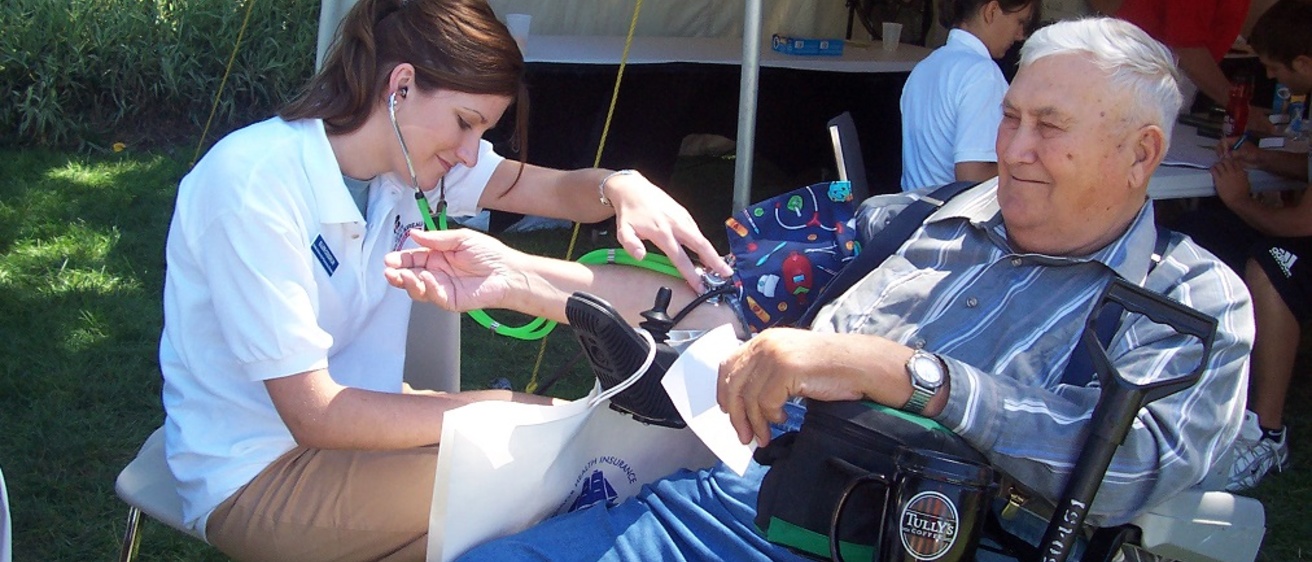Learning Experiences:
Orientation
Pharmacist Patient Care Services
Patient-centered Dispensing
Quality Initiatives
Leadership and Practice Management
Continuing Professional Development
Residency Research Project
Pharmacy Educator Preparation Program for Residents (PEPPR)
4
100+
Apply Now!
Requirements: 3 references, letter of intent, curriculum vitae, and College of Pharmacy transcript.
Orientation
- Residents will become oriented to the expectations of the residency program and resources available from the College of Pharmacy.
- Residents will become oriented to the services and resident expectations at the practice site.
- Residents will complete initial self-evaluations and reflections that will guide the program director and preceptors in developing an individualized development plan for the resident.
Pharmacist Patient Care Services
- Residents will spend approximately 2/3 of their time performing direct patient care activities.
- Residents will achieve proficiency in providing patient care services utilizing the JCPP Pharmacist Patient Care Process.
- Residents will collect pertinent patient information, assess and analyze information, create and implement safe and effective patient care plans in collaboration with patients, caregivers and other health care professionals, and monitor and evaluate the effectiveness of the care plan.
- Residents will communicate and collaborate with other health care professionals regarding patients’ medication regimens.
- Residents will educate and train patients and caregivers regarding medication and disease state management in order to reach desired health outcomes.
- Residents will identify patients expiring care transitions, perform medication reconciliation, provide education on new or change medication therapies, and monitor patients.
- Residents will assess patients for and administer, or refer patients for, ACIP recommended immunizations.
- Residents will perform health and wellness assessments to identify patients at risk for disease and in need of disease prevention interventions and/or medical management.
Patient-centered Dispensing
- Residents will spend up to 20% of their time providing patient-centered dispensing services.
- Residents will learn to identify and resolve drug therapy problems during the dispensing workflow.
- Residents will communicate and collaborate with other health care professionals regarding patients’ medication regimens.
- Residents will establish patient-centered relationships with patients and caregivers and provide counseling and education.
- Residents will assist patients in selection of nonprescription drug or self-care products and educate on appropriate use.
- Residents will document patient care as part of the patient’s pharmacy record and/or as a pharmacist eCare plan.
Continuing Professional Development
- Residents will apply a process of ongoing self-assessment and personal performance improvement.
- Residents will set SMART (specific, measurable, achievable, relevant and time-bound) goals to achieve their professional development goals.
Practice Management and Leadership
- Residents will gain independence in managing both pharmacy dispensing and patient care services.
- Residents will participate in pharmacy store level and/or organizational meetings with the goal of training and educating staff and/or advancing the practice.
- Residents will implement a new or enhance a current patient care service within the practice.
- Residents will complete a business plan related to a new or enhanced pharmacy service.
- Residents have the opportunity to attend local, state, and national pharmacy organization meetings, including, but not limited to, APhA Annual Meeting, NCPA Annual Convention, ASHP Midyear Meeting, Iowa Pharmacy Association (IPA) Legislative Day, IPA Annual Meeting, and IPA Resident Meeting.
- Residents may have opportunities to participate in organizational committees/workgroups and serve on committees with the Iowa Pharmacy Association and other pharmacy organizations.
- · Residents will train with, and have additional opportunities to network with, leaders in the pharmacy profession.
Resident Research Project
- Residents with work with site preceptors and college faculty to identify, design, implement and evaluate a practice-based research or innovative project.
- Residents will meet with college faculty 1-3 times per month to discuss project development, implementation, and analysis.
- Residents will present the results of their work as a poster at the APhA Annual Meeting (or other approved meeting) and as a podium presentation at a state or local venue.
- Residents will complete a final written project report and may consider publication.
- Previous Resident Projects include:
- Evaluation of Facilitators and Barriers to Communication Between Community Pharmacists and Prescribers in a Rural Community
- Evaluation of Barriers and Facilitators to Providing Point-of-Care HIV Screenings in the Community Pharmacy Setting
- Evaluation of a Community Pharmacist-led Transitions of Care Service at a Community Hospital
- Multi-Stakeholder Evaluation of Direct Contracting Between a Pharmacy and a Private Employer
- Investigation of Community Pharmacists’ Knowledge and Comfort Recommending and dispensing Nicotine Replacement Therapy Under a Statewide Protocol
Quality Initiatives
- Residents will deliver and/or enhance a population health service, program, or process to improve medication-related quality measures.
- Residents will participate in medication event reporting and identify root-cause and/or propose solutions to prevent future errors.
- Residents will participate in ongoing quality improvement efforts within the practice’s medication-use process or patient care services using the Plan-Do-Study-Act (PDSA) model.
Pharmacy Educator Preparation Program for Residents (PEPPR)
- Residents will attend the Instructional Design and Preceptor Development Workshops at College of Pharmacy.
- Residents will create a teaching portfolio.
- Residents will develop a teaching philosophy statement.
- Residents will conduct two large group didactic teaching experiences.
- Residents will facilitate at least two small group practice laboratory teaching experiences.
- Residents will precept APPE and IPPE students assigned to their practice site.
- Residents will create educational materials for patients, pharmacists, pharmacy staff and/or other healthcare providers.
